THE BENEFITS OF FEEDING HIGH PROTEIN DOG FOOD
Courtesy BlackHawk | by Dr Ada Siu When it comes to choosing the right food for your dog, protein is one of the…
Free Delivery when you spend $49 or more. (Weight Limits Apply – view more)
 Dog
Dog

Shop Tuckers great range of dog food, health care & wellness products today. Delivered or Click & Collect.
 Cat
Cat

Tuckers has a great range of cat food, health care & litter products for your beloved cat. Shop now.
 Horse
Horse

Tuckers carry a huge range of food, supplements, health care, hoof care and grooming accessories. Shop now.
 Chook/Bird
Chook/Bird

Tuckers range of food, accessories & health care products will keep your chooks & birds happy and healthy.
 Small Animal
Small Animal

Shop food and health care products for your little mates @ Tuckers. Delivered or Click & Collect.
 Farm/Garden
Farm/Garden

Tuckers carry a wide range of sheep & cattle products, plus everything you’ll need around the farm or garden.
 Dog
Dog

Shop Tuckers great range of dog food, health care & wellness products today. Delivered or Click & Collect.
 Cat
Cat

Tuckers has a great range of cat food, health care & litter products for your beloved cat. Shop now.
 Horse
Horse

Tuckers carry a huge range of food, supplements, health care, hoof care and grooming accessories. Shop now.
 Chook/Bird
Chook/Bird

Tuckers range of food, accessories & health care products will keep your chooks & birds happy and healthy.
 Small Animal
Small Animal

Shop food and health care products for your little mates @ Tuckers. Delivered or Click & Collect.
 Farm/Garden
Farm/Garden

Tuckers carry a wide range of sheep & cattle products, plus everything you’ll need around the farm or garden.
Article written by Purina.

Dogs love to have fun in the snow and ice and just like you, their needs will be different when the weather changes. Keeping warm, seasonal hazards and winter walks can all be potentially problematic, so make sure you’re prepared before winter comes.
When it’s chilly, protecting dogs feet during exercise is important. Once you’ve finished your winter dog walk, take care to remove any packed snow or ice from between the toes of your dogs paw pads. This also removes any moisture that can get trapped and cause sores.
Watch out for salt and other de-icers that are spread on footpaths and roads. They may irritate the pads and cause bleeding, so be sure to look out for them.
Short-haired dogs, older dogs and dogs with health problems will appreciate it if you buy them a dog jacket for when they go outside, especially when it’s chilly.
When on a winter dog walk your dog may start to lick or eat the snow. This leaves many owners asking the question is ice bad for dogs? Ice being poisonous to dogs is a myth; ice can however be difficult to chew and could cause dental issues to any dog eating it. So if your walking your dog and they digest a small amount of ice, no harm done, just make try not to encourage your pooch to eat large amounts of sharp ice as it could have a negative effect on their teeth.
Your dog’s natural curiosity means they aren’t afraid of tasting new things – as you’ve probably noticed! Because of its sweet taste, antifreeze poisoning in dogs is not rare. Many dogs may lap up antifreeze if they can access it. Antifreeze is highly toxic and fatal if ingested, so store it out of reach of your dog in winter. If by any chance your canine friend does come into contact with antifreeze, or anything else they shouldn’t, go straight to your vet, antifreeze poisoning in dogs can be fatal, if you want to find out what other substances could be poisonous for your dog take a look at our guide.
Dogs can suffer from frostbite if they become extremely cold – your vet will be able to tell you more. In general, frostbitten skin may appear grey or even black in colour, and it will be cold to the touch. If you’re worried that your dog has frostbite, it’s natural to want to help them as soon as possible – but don’t rub any frozen tissue as it will cause additional tissue damage. Again, if you’re worried about frostbite or your dog’s condition during winter, just go straight to your vet for help.
Well-nourished dogs in winter are better prepared for the cold, particularly if they spend a lot of time outdoors. If your dog loves to be outside, consider giving them a little more food to ensure they have the energy to cope with the cold. Dogs that spend a lot of time inside require less food to stay warm in winter; they also maintain a better body condition than dogs that spend a lot of time outside. Check with your vet to see how much extra energy dogs need during the winter months.
If your dog has a bowl of water outside, freezing water might be an issue; just remember to replace it several times during the day so they don’t get thirsty. You can even buy an electrically heated water bowl, particularly in countries with very cold winters; it’s a good idea to check regularly in case of freezing anyway, for both your peace of mind. Please remember that if you do keep a water bowl outside and it is freezing it may be time to think about bringing your dog inside, especially if they do not have a thick coat. If your dog does have a shelter outside, it should be insulated, elevated, protected from prevailing winds and watertight.
Hypothermia in dogs could set in when a dog has been outside for a long period of time at a dangerously low temperature. Your dogs size, breed and age are all big factors in recognising the amount of time a dog can be outside in the cold for. The key thing to remember is not to ignore the obvious signs, if your dog starts shivering or starts to lose their mental awareness it could mean they are catching hypothermia, if this begins to happen try your best to keep them warm and contact your vet immediately.
Entire range - quick and secure delivery
Buy securely online and pickup at your local store
Call your local store and come on down to pickup
© 2026 Tuckers Pet & Produce.
